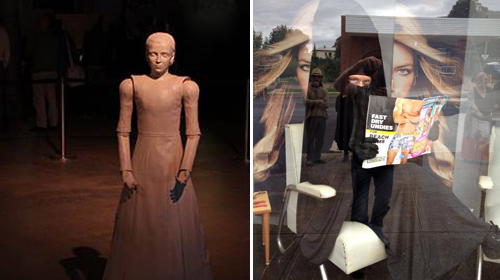Latest News Archive
Please select Category, Year, and then Month to display items
02 January 2025
|
Story Gerda-Marie van Rooyen
|
Photo Supplied
 Leading the research in South Africa is Prof Linus Franke from the Department of Soil, Crop and Climate Sciences.
Leading the research in South Africa is Prof Linus Franke from the Department of Soil, Crop and Climate Sciences.
Scientists are actively pursuing the successful breeding of diploid hybrid potatoes from inbred lines. This is expected to revolutionise potato breeding as it holds the key to rapid genetic progress. It will introduce new varieties for commercialisation through seed. Currently, existing potato variants have a gene that renders self-pollinated seeds infertile.
Prof Linus Franke, an academic in the Department of Soil, Crop and Climate Sciences at the UFS, is leading the research in South Africa. “This technology allows the production of genetically uniform potato seed that is easy to transport and largely disease-free.” He says this differs from conventional breeding whereby only vegetative propagation is possible due to tetraploid varieties in potatoes. It also risks carrying pests and diseases from one generation to the next – leading to the accumulation of pests and diseases with each round of multiplication.
Seed innovation
Prof Franke explains that Solynta BV, a seed company based in the Netherlands that produces potato varieties that can be grown from seed, has included South Africa in their research efforts because it is one of Africa’s largest producers and exporters. Through his academic relationship with Wageningen University and Research, a Dutch institution renowned for its agricultural endeavours and food production, the UFS became involved in researching hybrid potatoes grown from seed.
Diploid seeds containing two sets of chromosomes allow easier gene manipulation to increase predictability and speedier genetic progress. The breeding approach enables the incorporation of tolerance to pests, diseases, abiotic stresses (cold, heat, drought) and other desired genetic traits.
Although Prof Franke is optimistic about this research, he is not blind to disadvantages. “Potato seeds are tiny and have little energy reserves, making it harder to grow potatoes from seed than from tubers.” He says potatoes from seed will take longer to cultivate than tubers, as farmers need to grow plantlets from seeds first, adding six weeks to the growing period. “It is possible that commercial farmers can grow potatoes directly from seed. Alternatively, perhaps more likely, specialised growers will produce tubers of potatoes from seed; these tubers are then sold as seed tubers to other potato farmers, who then continue their normal practices of producing potatoes for the market from tubers.”
Financial benefits
Prof Franke says farmers have reason to get excited. “Seed potatoes will reduce input costs, as varieties with enhanced tolerance to pests and diseases require less pesticides. Planting one hectare of potatoes requires three to four tonnes of potato tubers, but only one 25 g packet of potato seeds.” Since potatoes are a more valuable commodity than maize, this technology might also increase farmers’ income potential.
Art2 + x [science] = 2 continents fused
2014-04-02
|

Left: Diamandini by Dr Mari Velonaki. Right: 'Muslim Hairdrying' by Cigdem Aydemir.
|
Mzanzi resistance art is set to fuse with Australian interdisciplinary art in an experimental ‘boiling pot’ – right here on our Bloemfontein Campus.
Program for Innovation in Artform Development (PIAD)
Kovsies and the Vryfees forged a highly-innovative link between South African and Australian artists by establishing the Program for Innovation in Artform Development (PIAD). Together we are embarking on a three-year collaboration to see what happens when experimental and community arts are fused.
The project includes intercultural laboratories, art and science exchange programmes, public forums as well developing and presenting experimental art.
Art(ist)s meet science(tists)
For the first time, two Australian artists will visit our Faculty of Natural and Agricultural Sciences in an exchange programme. The one is Dr Mari Velonaki, director of the Creative Robotics Lab at the University of New South Wales. The other is Dr Nigel Helyer, an honorary research fellow at the SymbioticA biotechnology lab at the University of Western Australia.
Dr Velonaki will explore new links between humans and computers that are community orientated. She will work closely with Prof PJ Blignaut and the Department of Computer Science and Informatics. In turn, Dr Helyer will investigate genetic coding and intercultural musical compositions. He will collaborate with Prof J Albertyn at the Department of Microbial, Biochemical and Food Biotechnology.
Vryfees 2014 and 2015 will also see contemporary and highly-experimental works from renowned Australian artists Cigdem Aydemir and Jess Olivieri. In addition, the festival will present OPENLab – a new national laboratory for early and midcareer artists and creative practitioners interested in making art in the public realm.
The programme is the result of a close partnership between the Vryfees and Situate Art in Festivals, managed by Salamanca Arts Centre in Australia (www.situate.org.au).
It also enjoys the support of:
- Australia Council for the Arts;
- NSW Artists Grant Scheme administrated by the National Association of the Visual Arts LTD;
- Situate Art in Festivals;
- National Lottery Distribution Trust Fund and
- Modern Art Project SA.
For more information on Piad visit www.vryfees.co.za or https://www.facebook.com/pages/PikoPiad/1435158293383474.